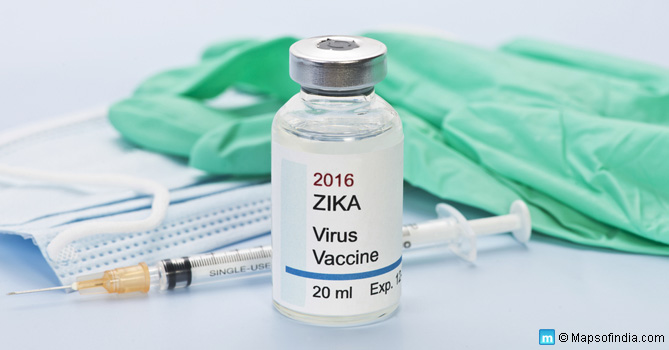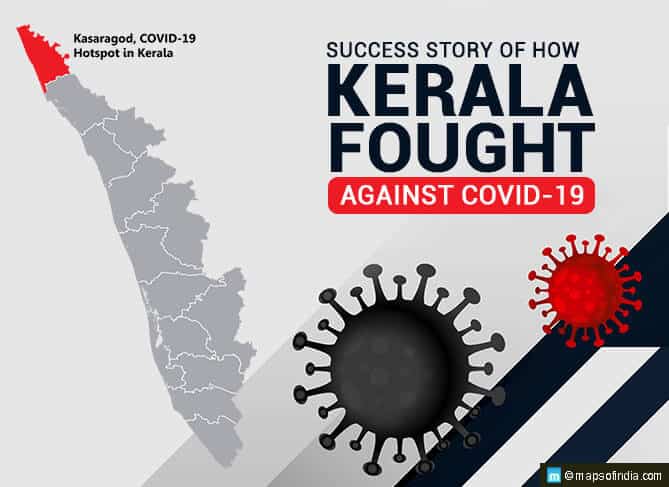What is the Zika Virus?
The Zika virus is a mosquito-borne virus that has found to be transmitted by Aedes mosquitoes. Those bitten by these mosquitoes develop mild symptoms such as skin rashes, fever, joint aches, and headaches. The symptoms are often neglected and last between 2 and 7 days. The Zika virus infection was first found in the Zika forest of Uganda in around 1947. Diagnosis has been made difficult by the fact that most adults do not show any symptoms and the virus does not lead to any lasting harm in many infected adults. There is no known cure for the Zika virus and infected adults are often cured by rest.
Despite its apparent lack of lasting effects among adults, recent developments have alarmed healthcare professionals, especially in the equatorial belt. The Americas, Africa and parts of Asia have been severely affected by its rapid spread.
One of the grave fallouts of a Zika virus infection is the effect it has on fetal development. Zika virus, it is believed, causes microcephaly in unborn children. This means that if a pregnant woman is affected by the virus, it attacks the nerve cells of the fetus and causes the child to be born with an abnormally small head and brain damage.
The quick spread of the virus is a matter of grave concern, says the World Health Organization. Microcephaly usually occurs in 1 out of 5000-10000 births but in areas affected by the outbreak of the Zika virus microcephaly incidences have now risen to about 1 in 100 births. This means that an entire generation is at risk due to the spread of this virus. It is also believed to be a sexually transmitted virus and may affect pregnant women from regions well beyond its original outbreak.
Among adults, the Zika virus is also suspected to cause the onset of the Guillain–Barré syndrome, a malady that causes damage to the immune system and eventually causing a temporary paralysis.
International Public Health Emergency
Through 2013 and 2014, Zika virus outbreaks were confined to a very small region that included French Polynesia, Cook Islands, New Caledonia and Easter Island. In 2015, however, a massive Zika virus outbreak was seen in many countries of the Central America, South America, and the Caribbean. In Brazil alone, it is estimated that some 1.5 million people have been infected by the Zika virus and the country has witnessed a massive upsurge in microcephaly cases as well (from 146 in 2014 to 3500 in 2015). Having declared the pandemic an “international public health emergency”, the WHO estimates that 3-4 million new cases are likely to show up in the Americas alone.
Though offering a fertile environment for the spread of the Zika virus, India has fortunately not reported any incident yet. The only advisory issued to Indian citizens is to retain a clean dry environment to prevent the breeding of mosquitoes and to abstain from travelling to affected regions.
Finding a Vaccine
According to the United Nations five different nations across the world are currently engaged in research projects with an aim to develop a vaccine against the deadly Zika virus. According to the WHO, about 23 projects involving the development of a vaccine are being run by 14 vaccine developers from five nations – the US, Austria, France, India and Brazil. American biotechnology company Inovio is also in the process of testing a DNA vaccine for Zika virus. This vaccine is believed to boost the immune system by developing antibodies against the virus. The vaccine has shown some promise in its preclinical study. Other pharmaceutical and research firms such as Sanofi from France and Takeda from Japan are also working furiously to find an effective vaccine against this virus that affects fetal growth and development.
Despite such extensive work being undertaken, it seems no immediate relief is in sight for the women and newborns of the affected regions. According to a news report, Dr. Marie-Paule Kieny, the Assistant Director General for Health Systems and Innovation at the WHO, commented that despite several pharma companies and research units working on the vaccine, large-scale and long-term trials are required to release the vaccine, which would delay its availability by years.
Developments in India
In February 2016, Hyderabad based Bharat Biotech International Limited announced that it has not one but two vaccines ready to combat the deadly Zika virus. The pharmaceutical company says it started to develop the Zika vaccine long before the Zika outbreak in the Americas started to cause concern. Using a live specimen of the Zika virus that had been imported for research purpose, the Bharat Biotech lab developed two vaccine candidates – a recombinant vaccine and an inactivated vaccine. The company says that working on the Zika virus was a natural corollary to working on Dengue and Chikungunya – both diseases are rampant in India and are carried by the same mosquito. Bharat Biotech has applied for a global patent on this vaccine codenamed Zikavac.
Despite the euphoria surrounding this breakthrough, it may be years before the vaccine developed by Bharat Biotech becomes commercially available. The vaccines will need to go through extensive clinical trials and regulatory hurdles in order to hit the manufacturing stage. While the Government of India and the Indian Council of Medical Research (ICMR) may speed up the clearance of necessary regulations, Zikavac will still need the time required for it to undergo animal and human testing. At this point, it looks highly likely that the government may extend all possible help in the testing of the Indian vaccine and cutting through bureaucratic red tape to uphold the vaccine as a shining example of Make in India.
Explore More :
What is Anthrax ? : Symptoms, Treatment, Prevention Measures
Rotavirus Vaccine Launched in India
Is India Prepared for Zika Virus: Guidelines, Symptoms, Diagnosis & Treatment
Genital Tuberculosis: Causes, Symptoms and Remedy
Leprosy – Causes, preventions and eradication programme
Japanese Encephalitis in India – Guidelines for Prevention, Control & Symptoms
Hepatitis B in India: Guidelines for Prevention, Symptoms, Causes, Risks & Treatment
Ebola Virus Outbreak – Is India Prepared?
Prevalence of Diabetes in India
Prevention of Heart Attack and Other Related Heart Diseases
India To Be Certified As A Polio-free Nation By WHO
Swine Flu: What You Need to Know and Do
Cervical Cancer: Causes, Symptoms, Prevention and HPV Vaccination
Growing Problem of Asthma in India





